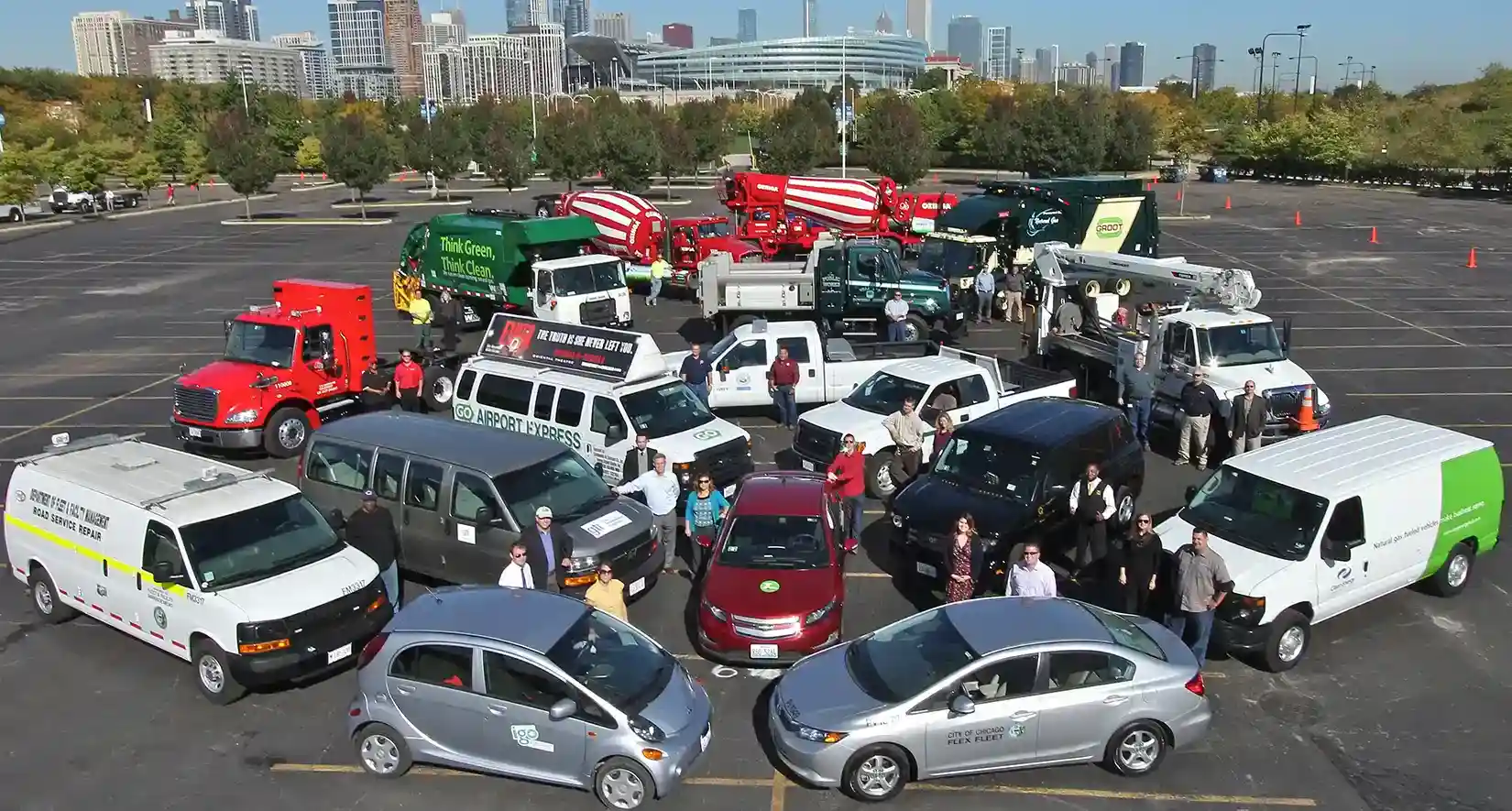Transportation Technology Integration
Drawing on more than 30 years of transportation research experience, NLR provides data, tools, and technical assistance to support transportation technology evaluation and planning decisions.

NLR's transportation technology integration experts are trusted partners, providing technical expertise on the adoption and use of alternative fuels and advanced vehicle technologies based on a deep understanding of real-world applications.
Responsive research is the key component of NLR's transportation initiatives, with a recognition that solutions should address individual transportation goals. Advanced research, modeling, and data analysis drive NLR's development of strategies
that are effective and scalable. This integrated, data-informed approach ensures the adoption of transportation energy choices that result in lower operational costs, improved mobility, and better air quality.
Clean Cities and Communities
NLR is part of the U.S. Department of Energy's (DOE's) Clean Cities and Communities partnership, providing customized assistance, education and outreach materials, organizational capacity building, and an array of data analysis and tools for more than 75 DOE-designated coalitions nationwide. As new transportation technologies emerge, NLR offers up-to-date analysis, guidance, and expertise that help coalitions collaborate with decision makers to evaluate these new choices.
Energy to Communities
NLR manages Energy to Communities, a DOE program that provides communities with expertise and tools to make local energy systems more affordable, reliable, and secure. NLR's transportation integration experts provide individualized technical support and build connections to foster collaboration.
NLR provides tailored and solutions-oriented expertise to overcome a range of transportation challenges by leveraging the lab's extensive data, tools, and analysis capabilities. NLR's transportation technical experts facilitate robust stakeholder relationships to develop solutions that align with stakeholder goals.
In collaboration with stakeholders, NLR also anticipates potential obstacles to transportation integration and develops resources to proactively overcome challenges.
Contact
Group Manager, Applied Research and Engineering for Transportation Systems
NLR leads technical assistance activities for a broad range of partners, including DOE, the Joint Office of Energy and Transportation, the U.S. Environmental Protection Agency, and the U.S. Department of Transportation.
Alternative Fuels and Advanced Vehicles and Infrastructure
NLR delivers technical expertise and cultivates strong partnerships to tackle and anticipate complex domestic fuel, advanced vehicle, and infrastructure challenges. The scope of these efforts is wide, including light-duty vehicles, medium- and heavy-duty trucks, and off-road vehicles and a variety of fuel types.
NLR engineers, researchers, and project managers collaborate with a variety of stakeholders, including states, fleets, municipalities, Tribal Nations, school districts, transit agencies, and other partner agencies. For example, NLR provides technical assistance to DOE Clean Cities and Communities coalitions. NLR also leads the Electric Transit User Group to help understand technical assistance needs related to transit vehicle electrification. Other sample work topics include workforce development, alternative fuel and vehicle safety, and municipal fleet planning.
School and Transit Bus Fleets
NLR manages the Joint Office of Energy and Transportation's technical assistance program for fleets. NLR experts work to reduce barriers to electric bus adoption by providing school and transit bus fleets with free technical assistance, including best practices, lessons learned, and comprehensive fleet electrification plans. NLR also manages the bus data logging project, which aims to better understand performance data of advanced buses operating in real-world conditions.
NLR's renowned tools and data experts support market-driven adoption and use of alternative fuels and advanced vehicles by simplifying complex models into user-friendly web tools and services, making research data more accessible.
Transportation tools and data experts also develop and maintain balanced resources on behalf of DOE, which are informed regularly by longstanding relationships with stakeholders.
Contact
Group Manager, Transportation Applications and Data Analysis
Alternative Fuels and Technologies
DOE Alternative Fuels Data Center: Go-to resource for objective information about more than a dozen advanced transportation fuels and vehicle technologies as well as analysis tools, publications, transportation-related laws and incentives, and maps and data.
DOE Alternative Fueling Station Locator: Comprehensive database of alternative fueling stations in the United States and Canada and the definitive source for measuring the growth of electric vehicle charging infrastructure.
Commercial Vehicles
FleetREDI: The world's only secure, anonymized, national commercial vehicle data platform. FleetREDI's interactive online portal allows users to find, share, and analyze integrated commercial vehicle data and energy insights.
Fleet DNA: Data clearinghouse of commercial fleet vehicle operating data to help vehicle manufacturers and developers optimize vehicle designs and inform fleet managers considering advanced technologies for their fleets.
Infrastructure Planning
EVI-X Modeling Suite: NLR's flagship suite of tools that inform the planning and development of large-scale electric vehicle charging infrastructure deployments—from the regional, state, and national levels to site and facility operations.
REopt: Web-based tool used in conjunction with electric vehicle charging system analyses.
Transportation Projects and Datasets
DOE Livewire Data Platform: Collects, preserves, curates, and disseminates a catalog of transportation and mobility-related projects and data.
Transportation Secure Data Center: Provides free access to detailed transportation data from a variety of travel surveys and studies conducted across the nation.
Public Fleet Deployment
NLR's public fleet analysis and regulation expertise includes fleet transition analysis, fleet electrification, and more.
Also, NLR can apply fleet data logging techniques and tools for analyzing operations and informing technology decisions.
Federal Fleets
Through the DOE Federal Energy Management Program, NLR provides guidance and assistance to help agencies implement federal legislative and regulatory requirements related to alternative fuel use.
State Fleets and Alternative Fuel Providers
The NLR-managed DOE State and Alternative Fuel Provider Fleet Program works with covered fleets to help them meet provisions in the Energy Policy Act.
NLR collaborates with other national labs and industry partners to solve soft cost challenges associated with other fueling infrastructure, including reducing challenges associated with infrastructure permitting.
Share
Last Updated Dec. 7, 2025
